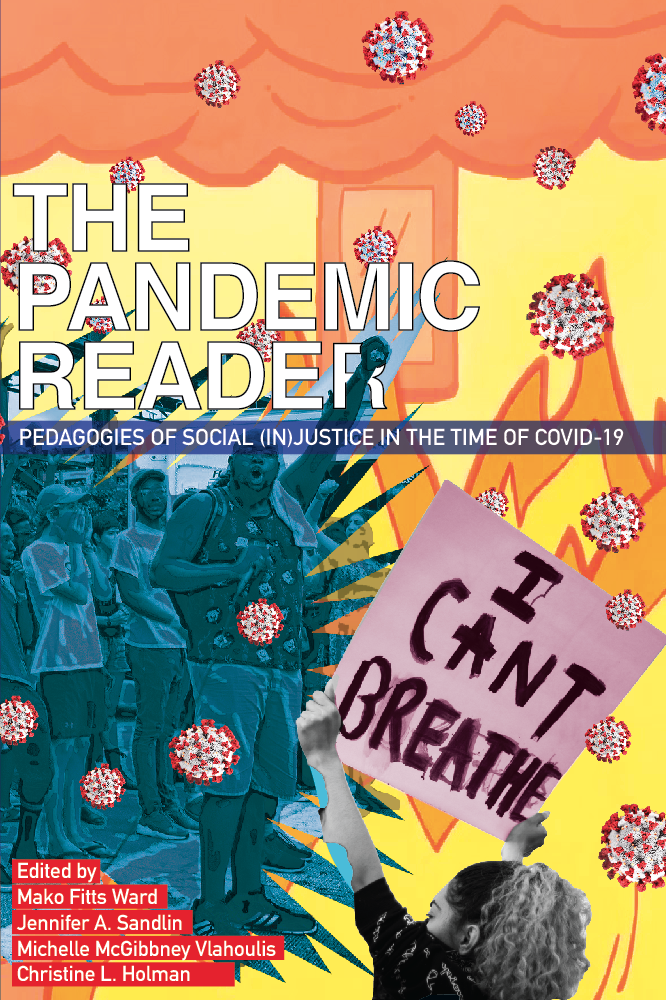Essays explore altered social experiences from the COVID-19 pandemic

School of Social Transformation faculty members (from left): Mako Fitts Ward, assistant professor, African and African American studies; Michelle McGibbney Vlahoulis, senior lecturer, women and gender studies; Jennifer A. Sandlin, professor, justice and social inquiry; Christine L. Holman, senior lecturer, justice and social inquiry.
“The Pandemic Reader” is a new collection of essays edited by faculty in Arizona State University's School of Social Transformation, in The College of Liberal Arts and Sciences.
The collection explores the multitude of ways in which the COVID-19 pandemic has changed life in every aspect. As people around the world try to navigate challenges and revelations that have unfolded in light of the coronavirus pandemic, the faculty involved in the project say it is still crucial to consider the societal impact at large, and what it will mean down the line.
“Our collection of essays, articles and activities are designed to assist in both understanding and deconstructing the ways in which the pandemic has impacted our lives — as individuals, families and communities," said editor Christine L. Holman, senior lecturer, justice and social inquiry.
“The Pandemic Reader” draws from research, writings and discussions by journalists, students, community activists and academics who have formed teachable viewpoints on the world’s current state of affairs. The contributors come from a wide range of specialties from economics to pediatrics to epidemiology and investigative reporting.
The editors of this collection are Mako Fitts Ward, Jennifer A. Sandlin, Michelle McGibbney Vlahoulis and Holman. They helped bolster the sociohistorical framework and evidence-based responses used to address issues such as: pandemic racism, coronavirus capitalism, communications surrounding exposure and protection, pandemic leadership, and social messaging.
In addition to offering thought-provoking narratives, “The Pandemic Reader” strives to serve as a blueprint for new teaching strategies as communities relearn how to connect and move forward.
Sandlin says the book is “an attempt to expose the cracks in systems that have become too wide to ignore."
"It’s important to provide context to understand how the multiple pandemics of 2020 — including COVID-19 and dismantling structural racism — exacerbated vast disparities that have existed and been cultivated for decades and even centuries,” she said.
This book aims to provide a resource for courses on social justice and introduce critical perspectives for enlightening classroom discussions. After engaging with this material, the intended outcome is that COVID-era inequities are magnified, to inspire new perspectives and necessary change.
The book is available in e-book and paperback at diopress.com/the-pandemic-reader.
More Health and medicine

Innovative, fast-moving ventures emerge from Mayo Clinic and ASU summer residency program
By Georgann YaraIn a batting cage transformed into a custom pitching lab, tricked out with the latest in sports technology,…
Is ‘U-shaped happiness’ universal?
A theory that’s been around for more than a decade describes a person’s subjective well-being — or “happiness” — as having a U-…
College of Health Solutions medical nutrition student aims to give back to her Navajo community
As Miss Navajo Nation, Amy N. Begaye worked to improve lives in her community by raising awareness about STEM education and…
